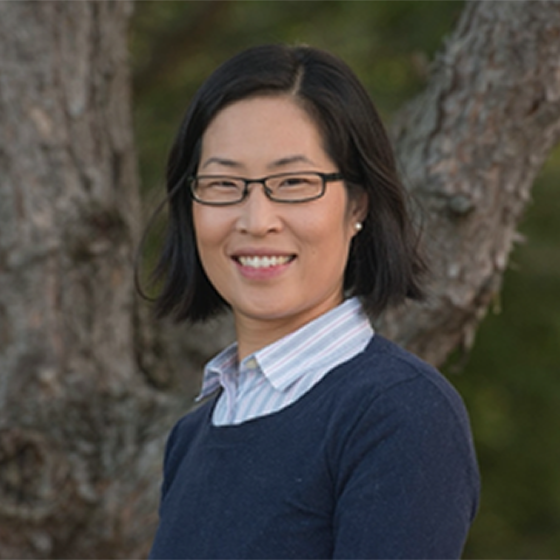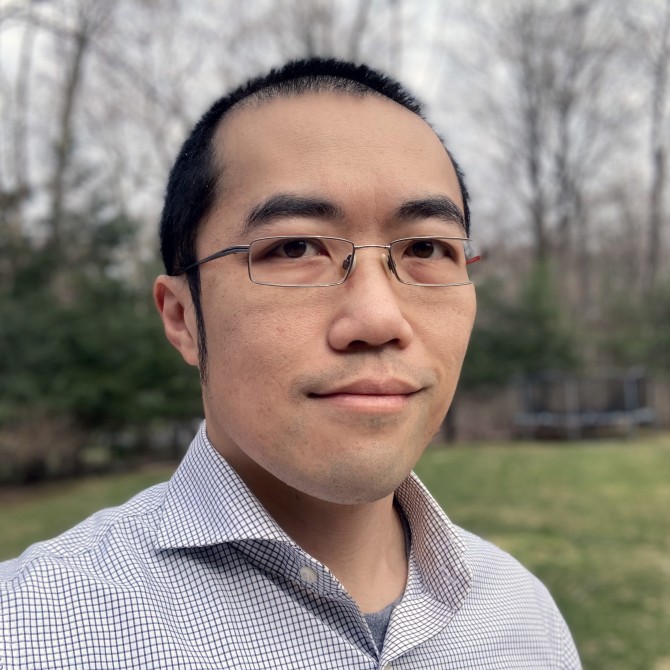Alumni return to Cornell as key faculty in university initiatives
J udy Cha, Ph.D. ’09, has been hired as a professor in Cornell’s Department of Materials Science and Engineering, bringing to her alma mater an expertise in nanoscale materials that will be key to enhancing the university’s NEXT Nano initiative – an interdisciplinary program designed to advance nanoscale science and microsystems engineering.
udy Cha, Ph.D. ’09, has been hired as a professor in Cornell’s Department of Materials Science and Engineering, bringing to her alma mater an expertise in nanoscale materials that will be key to enhancing the university’s NEXT Nano initiative – an interdisciplinary program designed to advance nanoscale science and microsystems engineering.
Cha is currently the Carol and Douglas Melamed Associate Professor of Mechanical Engineering and Materials Science at Yale University and will join the Cornell faculty in 2022. Her husband, Alex Kwan, Ph.D. ’09, associate professor of psychiatry and neuroscience in the Yale School of Medicine, will join Cornell’s Nancy E. and Peter C. Meinig School of Biomedical Engineering.
Both alumni are important additions to the College of Engineering, which is growing its roster of interdisciplinary faculty who contribute to university-level centers and initiatives. Cha is a particularly strategic fit, with research interests including atomic understanding of material formation and the design of new materials with applications for quantum computing and information processing.
“Judy is a deep thinker who tackles big questions in materials science,” said Lara Estroff, chair of the Department of Materials Science and Engineering. “Her fearless approach combines advanced synthesis with cutting-edge characterization techniques, spanning fields from materials science to physics to electrical and computer engineering. She is already building collaborations across these departments at Cornell.”
Cha’s research group specializes in the synthesis and characterization of a class of materials known as chalcogenides, which include sulfides, tellurides and selenides. Their work to create two-dimensional, layered topological nanomaterials has a range of novel applications, including quantum computing, biological imaging and renewable energy.
“I’m really excited to work with other faculty members at Cornell to advance in situ transmission electron microscopy experiments, correlating changes in electrical properties as the nanoscale materials undergo phase transitions at cryogenic temperatures,” Cha said. “The collaborative environment and long-established research centers at Cornell enable big projects to be undertaken.”
Cha’s homecoming will reunite the professor with her doctoral adviser, David Muller, the Samuel B. Eckert Professor of Engineering and task force member of NEXT Nano.
“I think my group fits nicely with the efforts defined in the NEXT Nano initiative, as we can provide nanoscale topological materials for other groups for sophisticated measurements,” Cha said. “My primary research focus is on nanowires of topological materials and, currently, I’m looking at a class of topological metals that can rival copper for quantum computing and low-resistance interconnection applications.”
Cha is the recipient of the Moore Foundation EPiQS Materials Synthesis Award, the Nano Research Young Innovator Award in Nano Energy, and the National Science Foundation CAREER Award, among other accolades.
Kwan to build on legacy of Watt Webb
 Kwan’s research focuses on the medial frontal cortex of the brain. Specifically, his research group uses cellular-resolution optical imaging tools to record neural activity in mice, with applications in understanding psychiatric drugs and the mechanisms underlying mental disorders.
Kwan’s research focuses on the medial frontal cortex of the brain. Specifically, his research group uses cellular-resolution optical imaging tools to record neural activity in mice, with applications in understanding psychiatric drugs and the mechanisms underlying mental disorders.
The optical tools used by Kwan can be traced back to his days as a Cornell doctoral student in the laboratory of Watt Webb, the late applied physicist whose imaging techniques revolutionized how scientists observe biological dynamics deep within living tissue. It was in Webb’s lab that Kwan developed nonlinear optical microscopes like the ones he uses today to observe the inner workings of the brain.
“Watt Webb was a special scientist because he always had this sense of wonder – every discovery, big or small, was an exciting moment,” Kwan said. “I try to do the same for my lab, and I believe there is no better place for the students to learn how to do science than at Cornell.”
Kwan’s research focus will be of particular value to the Cornell Neurotech initiative, which aims to develop technologies for revealing how individual brain cell’s activity in complex neural circuits underlies behavior. He also is expected to develop strong collaborations with Weill Cornell Medicine’s Department of Psychiatry, according to Marjolein van der Meulen, James M. and Marsha McCormick Director of the Meinig School of Biomedical Engineering.
“We are excited to have Alex join us as his neural circuit focus is unique and strengthens our neuroscience community within the school and across campus,” van der Meulen said. “He also adds to our strong imaging and instrumentation effort, bringing expertise in optogenetics, the stimulation and suppression of activity with light.”
Kwan’s research is supported by multiple grants from the National Institutes of Mental Health and the Simons Foundation. He will join the Cornell faculty in 2022.
“I look forward to forming new collaborations at Cornell,” Kwan said. “It’s exciting that even though my lab is still preparing for the move, we have already started talking with people at Cornell about new microscopy techniques that can overcome imaging limitations.”
by Syl Kacapyr

